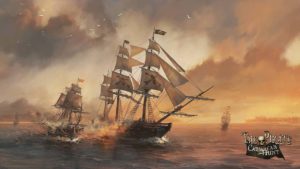
Jennings was one of the founders of the pirate colony of Nassau. Jennings was legal (not a pirate – yet) but he was also part of a vast illegal movement to overthrow the sitting English king George I, and replace him with the Stuart (Scottish) James II. In 1715 or 1716, Vane signed on to the privateering crew of Henry Jennings. This would have given the young man plenty of time to Anglicize himself, and plenty of reason to, asked if he was French, to reply “No!” Most of these Protestant French headed for the English colonies, and it would have been 17 years before we get our first good report of Charles Vane, living in the old pirate town of Port Royal. These people weren’t comfortable with enslaving folk so like themselves, so in 1688 they all threw the system over and left the island, removing about 1/3 of its population in a peaceful revolt. The Protestant English enslaved the Catholic Irish, the Spanish enslaved Native Americans and those English/Dutch that they could catch, and pretty much everybody enslaved Africans.īut Martinique was populated, not by French Catholics, but by other Huguenots, richer and luckier, who had seen what was coming in French politics and had bought land in the new colony of Martinique.

You see, when other countries seized undesirables and sent them out as – let’s call them slaves – those people didn’t have much in common with the people they were sold to. There he would have encountered an unusual situation.

Whatever, if Vane was part of this bunch, he would have been transported from France to Martinique. A still smaller group look at the facts of servitude and just call them slaves. Other historians look more closely at the French world and call them “serfs” (it’s important to remember that, during this time period, the ancient medieval governing systems were still partially in place).


 0 kommentar(er)
0 kommentar(er)
